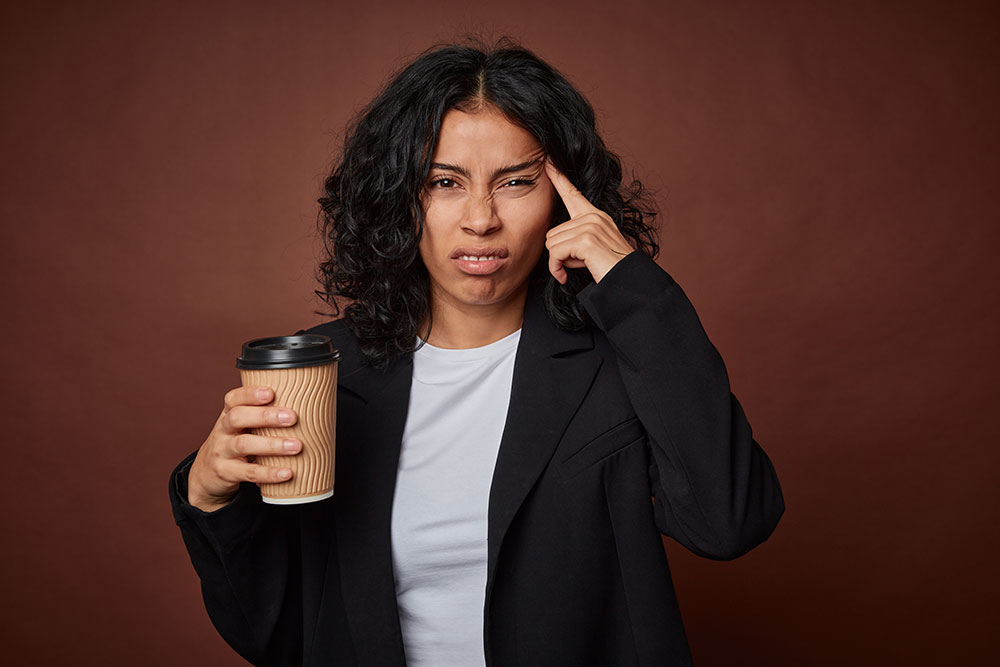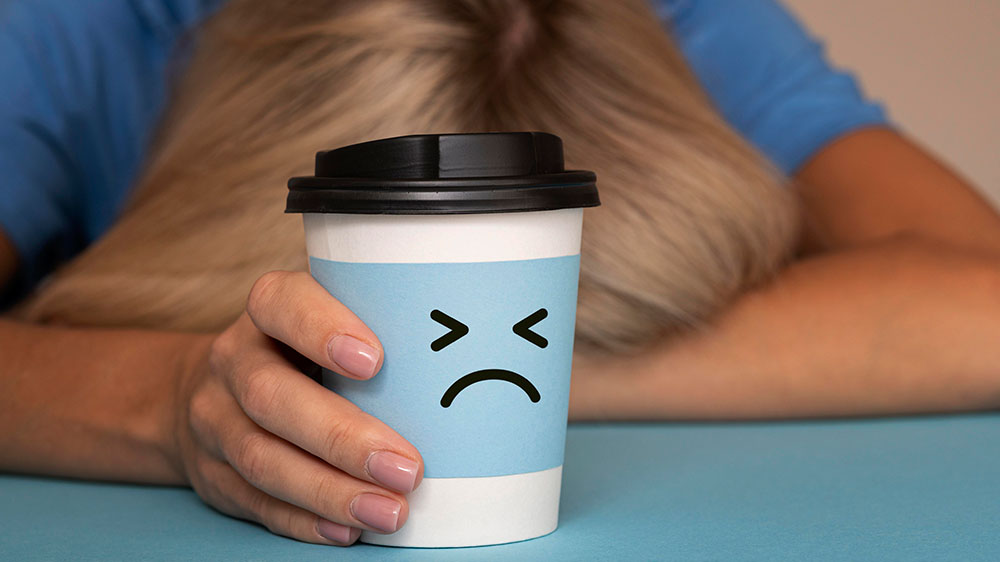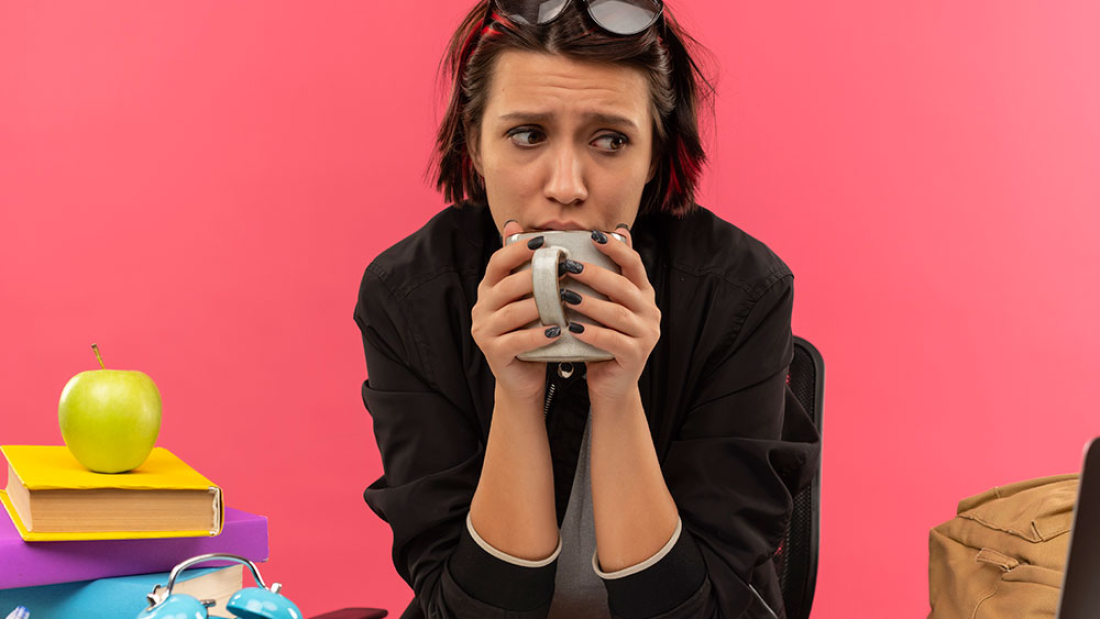The relationship between coffee and mental health, particularly anxiety and depression, is a topic that continues to intrigue researchers and individuals seeking to optimize their well-being. As the most widely consumed beverage globally, coffee’s impact on anxiety and depression has garnered significant attention. However, understanding the truth behind this connection requires a nuanced exploration of various factors, including alternative beverages or strategies for managing anxiety and depression, the effects of caffeine on sleep patterns, susceptibility of specific populations, and practical tips for informed coffee consumption decisions. Are there alternative beverages or strategies recommended over coffee? How does caffeine affect sleep patterns and its implications for anxiety and depression? Are there populations more vulnerable to coffee’s negative effects? This article aims to unravel these questions, provide practical insights, and explore alternatives for managing anxiety and depression beyond coffee. By shedding light on these aspects, individuals can make informed choices and navigate their journey toward improved mental well-being.
Are There Alternative Beverages or Strategies for Managing Anxiety and Depression That Are Recommended Over Coffee?
Yes, there are alternative beverages and strategies that may be recommended for managing anxiety and depression instead of coffee. While coffee is a popular choice for its stimulating effects, some individuals may find that it exacerbates their anxiety or negatively impacts their mood. Here are a few alternatives to consider:
- Herbal teas: Herbal teas such as chamomile, lavender, lemon balm, or passionflower can have calming effects and promote relaxation. These teas are caffeine-free and may help reduce anxiety symptoms.
- Green tea: Green tea contains less caffeine than coffee and offers a more moderate energy boost. It also contains L-theanine, an amino acid that can promote a sense of calmness and relaxation.
- Decaffeinated coffee: If you still enjoy the taste and ritual of coffee but want to reduce caffeine intake, decaffeinated coffee is an option. It contains a significantly lower amount of caffeine but still provides the familiar flavor.
- Fruit-infused water: Staying hydrated is essential for overall well-being. Infusing water with slices of fresh fruit, such as citrus or berries, can add flavor and make it more enjoyable to drink throughout the day.
- Relaxation techniques: Engaging in relaxation techniques like deep breathing exercises, mindfulness meditation, yoga, or engaging in a hobby or activity you enjoy can help manage anxiety and promote a sense of well-being without relying on beverages.
It’s important to note that the effectiveness of these alternatives can vary from person to person. It’s recommended to experiment and find what works best for you in managing your anxiety and depression. Consulting with a healthcare professional or mental health specialist can also provide personalized recommendations and guidance based on your specific needs and circumstances.
How Does Caffeine Affect Sleep Patterns, and How Might That Impact Anxiety and Depression?
Caffeine, a stimulant found in coffee and other beverages, can have a significant impact on sleep patterns, which in turn can affect anxiety and depression. Here’s how caffeine can influence sleep and its potential implications:
- Delayed Sleep Onset: Caffeine can make it harder to fall asleep by blocking adenosine receptors in the brain, which promote drowsiness. This delay in sleep onset can lead to reduced total sleep time and overall sleep deprivation.
- Disrupted Sleep Architecture: Caffeine can disrupt the normal sleep architecture, impacting the different stages of sleep. It may reduce the amount of deep sleep (slow-wave sleep) and REM (rapid eye movement) sleep, which are essential for restorative sleep and emotional regulation.
- Decreased Sleep Quality: Even if caffeine doesn’t prevent falling asleep, it can still reduce sleep quality. Caffeine can cause lighter, more fragmented sleep, leading to more awakenings during the night and a decrease in overall sleep satisfaction.
- Heightened Arousal and Alertness: Caffeine’s stimulating effects can increase alertness and arousal, making it harder to relax and unwind before bedtime. This heightened state of arousal can exacerbate anxiety symptoms and contribute to difficulty in falling asleep.
- Vicious Cycle: Poor sleep due to caffeine consumption can create a vicious cycle. Lack of quality sleep can increase the risk of developing or worsening anxiety and depression symptoms. Conversely, anxiety and depression can also disrupt sleep patterns, leading to a potential reciprocal relationship.
It’s important to note that individual sensitivities to caffeine can vary. Some individuals may be more tolerant to its effects, while others may be more sensitive, experiencing stronger impacts on sleep and mental health.
For individuals with anxiety or depression, minimizing caffeine intake, especially in the afternoon and evening, may be beneficial. Creating a healthy sleep routine, practicing good sleep hygiene, and considering alternative relaxation techniques can also contribute to improved sleep quality and better management of anxiety and depression. As always, consulting with a healthcare professional or mental health specialist can provide personalized guidance based on your specific circumstances and needs.

Are There Specific Populations, Such as Individuals With Certain Mental Health Conditions, Who May Be More Susceptible to the Negative Effects of Coffee on Anxiety and Depression?
Yes, certain populations, including individuals with specific mental health conditions, may be more susceptible to the negative effects of coffee on anxiety and depression. Here are a few examples:
- Generalized Anxiety Disorder (GAD): Individuals with GAD often experience excessive and uncontrollable worry and may have heightened sensitivity to caffeine’s stimulating effects. Caffeine can exacerbate symptoms of anxiety, leading to increased restlessness, nervousness, and irritability.
- Panic Disorder: People with panic disorder may be particularly sensitive to caffeine due to its potential to trigger panic attacks. Caffeine can increase heart rate, induce feelings of restlessness, and mimic physical symptoms associated with panic attacks, leading to heightened anxiety.
- Sleep Disorders: Individuals with sleep disorders, such as insomnia or sleep apnea, may be more vulnerable to the disruptive effects of caffeine on sleep. Poor sleep quality can contribute to increased anxiety and depression symptoms, and caffeine consumption can further aggravate sleep disturbances.
- Bipolar Disorder: Caffeine’s stimulating effects can potentially destabilize mood in individuals with bipolar disorder. It can trigger manic episodes or exacerbate symptoms of mania, leading to increased agitation, racing thoughts, and irritability.
- Sensitivity to Stimulants: Some individuals naturally have a higher sensitivity to stimulants, including caffeine. They may experience heightened anxiety, jitteriness, or rapid heart rate even with moderate amounts of caffeine, making them more susceptible to the negative effects on anxiety and depression.
It’s important to recognize that individual responses to caffeine can vary, and not everyone with these conditions will necessarily experience adverse effects. However, it is advisable for individuals with these mental health conditions to monitor their caffeine intake and assess its impact on their symptoms. Consulting with a healthcare professional or mental health specialist can provide personalized guidance and help determine the most suitable approach to caffeine consumption based on individual needs and treatment plans.
Are There Specific Strategies or Lifestyle Changes That Can Help Manage Anxiety and Depression Without Relying on Coffee?
Absolutely! There are various strategies and lifestyle changes that can help manage anxiety and depression without relying on coffee. These approaches focus on overall well-being and can contribute to improved mental health. Here are some examples:
- Regular exercise: Engaging in regular physical activity, such as aerobic exercises, yoga, or walking, can help reduce anxiety and depression symptoms. Exercise promotes the release of endorphins, which are natural mood boosters.
- Balanced diet: Eating a well-balanced diet rich in fruits, vegetables, whole grains, lean proteins, and healthy fats can support overall mental health. Nutrient deficiencies can impact mood, so nourishing your body with nutritious foods is essential.
- Mindfulness and relaxation techniques: Practices like mindfulness meditation, deep breathing exercises, progressive muscle relaxation, or yoga can help reduce anxiety and improve mood by promoting a sense of calmness and inner peace.
- Adequate sleep: Prioritizing good sleep hygiene and ensuring you get enough quality sleep is crucial for managing anxiety and depression. Establish a consistent sleep routine, create a relaxing environment, and limit electronic device use before bedtime.
- Stress management: Developing effective stress management techniques, such as journaling, engaging in hobbies, spending time in nature, or seeking support from loved ones, can help reduce anxiety and improve overall well-being.
- Seeking support: Connecting with a therapist or counselor can provide valuable support in managing anxiety and depression. They can help you develop coping strategies, explore underlying issues, and provide guidance tailored to your specific needs.
- Limiting alcohol and substance use: Alcohol and certain substances can worsen anxiety and depression symptoms. It’s important to be mindful of their potential negative effects and consider reducing or avoiding them.

How Do Other Beverages or Strategies Compare to Coffee in Terms of Their Impact on Anxiety and Depression Management?
When comparing other beverages and strategies to coffee in terms of their impact on anxiety and depression management, it’s important to consider individual responses and preferences. Here are some general points of comparison:
- Caffeine content: Coffee contains a relatively high amount of caffeine compared to other beverages. If caffeine exacerbates anxiety or disrupts sleep for you, choosing beverages with lower caffeine content, such as herbal teas or decaffeinated options, may be more beneficial.
- Calming properties: Some herbal teas, like chamomile or lavender, are known for their calming properties and can help reduce anxiety symptoms. These beverages have a soothing effect and promote relaxation, which can be helpful in managing anxiety and mild depressive symptoms.
- Nutritional benefits: Certain beverages, such as green tea or matcha, provide antioxidants and other beneficial compounds that support overall health. These beverages offer a milder energy boost compared to coffee while also promoting relaxation through the presence of L-theanine.
- Ritual and satisfaction: For some individuals, the act of preparing and enjoying a warm beverage can be a comforting ritual that promotes relaxation and a sense of well-being. Finding alternative beverages that provide a similar experience to coffee, both in terms of taste and the ritualistic aspect, can be helpful for managing anxiety and depression.
- Individual preferences: Everyone’s response to different beverages and strategies may vary. Some individuals may find that coffee helps improve their mood and focus, while others may experience heightened anxiety or irritability. It’s important to pay attention to your own body and mind and make choices based on what works best for you.
Ultimately, the impact of beverages and strategies on anxiety and depression management can vary from person to person. It’s important to experiment, listen to your body, and choose options that align with your individual needs and preferences. Consulting with a healthcare professional or mental health specialist can provide personalized guidance and support in finding the most suitable approaches for managing anxiety and depression.
Unraveling the Coffee-Anxiety/Depression Connection: In Conclusion
The impact of coffee on anxiety and depression is a complex and individualized topic. While coffee is known for its stimulating effects, its relationship with mental health is multifaceted. It’s important to consider alternative beverages and strategies for managing anxiety and depression, as individual responses to caffeine can vary. Understanding the effects of caffeine on sleep patterns and its potential impact on anxiety and depression is crucial. Certain populations, such as individuals with specific mental health conditions, may be more susceptible to the negative effects of coffee. Exploring alternative beverages like herbal teas, green tea, or decaffeinated options can offer calming properties and support well-being. Additionally, adopting strategies such as regular exercise, a balanced diet, mindfulness, and seeking support can contribute to managing anxiety and depression without relying solely on coffee. Ultimately, finding the right approach requires self-awareness, experimentation, and personalized guidance. Prioritizing mental health and making informed decisions about coffee consumption can empower individuals to optimize their overall well-being.
Brought to you by Fomat Medical

